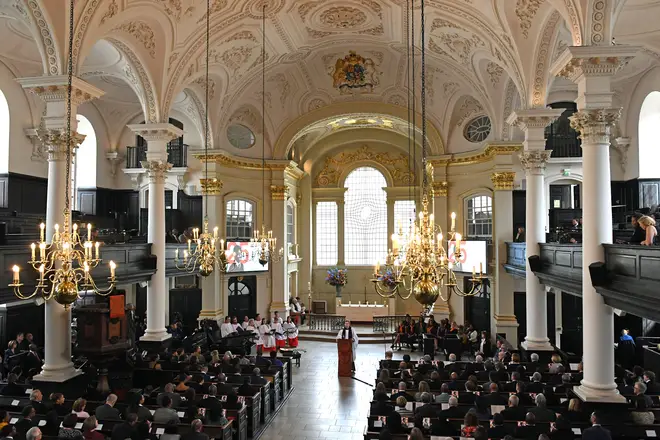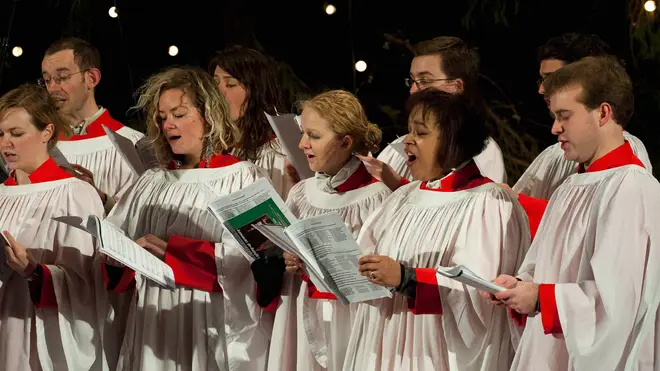On Air Now
Calm Classics with Ritula Shah 10pm - 1am
21 September 2020, 13:47 | Updated: 21 September 2020, 13:54

St Martin-in-the-Fields church has been accused of using the coronavirus pandemic as “cover” amid its shock dismissal of ten choirs and orchestras.
Nearly a dozen music ensembles, including the English Chamber Choir and London Concertante, say they have been “summarily dismissed” by a major London music venue.
St-Martin-in-the-Fields church had relationships with over ten ensembles, who had put on concerts there for 30 years and built its reputation as not just a church, but a respected concert venue.
The axed orchestras and choirs, who all pay a hire fee and ticket commission to the church, call the move “an act of callous and unchristian behaviour”.
But the Trafalgar Square church says the move is part of a “new vision” for future concerts, which will come primarily from the venue’s own professional musicians, including the orchestra of the Academy of St Martin in the Fields, which last year celebrated its 60th birthday.
By cutting off its relationship with “third-party promoters”, the venue aims to generate more income. The ensembles, for whom lockdown has been a desperate time, accuse St Martin’s of using the pandemic as “cover” for terminating its relationship with them.
Read more: Soprano Anna Netrebko hospitalised with coronavirus >

Peter Dyson of the Belmont Ensemble of London, which has played more than 800 concerts at the church since 1991, said the musicians were abandoned at a time when they were “on our knees”.
“We have given our heart and soul to St Martin’s for 30 years,” Dyson told the Observer. “We’ve been squeezed and squeezed over the past few years, and now they are just cutting us out.”
Dyson adds before the pandemic, the ensembles had generated millions for the church. They employed around 200 freelance musicians who are “now being discarded and thrown onto the scrap heap”.
Following the announcement, which the ensembles claim they heard in an email with no prior consultation, the Belmont Ensemble of London launched a petition demanding the “outrageous decision to cast out loyal musicians” be reversed.
They say it “will cause severe hardship for hundreds of our musicians in numerous orchestras and choirs, who have served and supported St Martin’s faithfully, building a concert series from virtually nothing over three decades, creating the commercially and artistically successful concert series we see today.
“This abrupt and dismissive action is callous and un-Christian behaviour,” they added. “It will reduce the viability of hundreds of our musicians’ freelance work and put many professional orchestras out of business.”

Marriner at 90: Saint-Saëns Introduction and Rondo Capriccioso
The pandemic has been a devastating time for UK freelance musicians, 64 percent of whom have said they are considering a change in career. Britain’s major churches and cathedrals have been dealt a similarly harsh blow, as income from venue hire, café spending and collection plummeted in lockdown.
Westminster Abbey says it has lost £12m in revenue, the professional choir of St Margaret’s Westminster has been completely disbanded, and the Church of England’s 42 cathedrals are projected to be down more than £28.4m this year.
St Martin’s recently entered a period of redundancy consultation, following a “drastic loss of commercial income”, by the end of which it says it may lose a large number of roles within its small company.
Andrew Earis, St Martin’s director of music, said: “We intend to combine the popular programming for which St Martin’s is known and loved with new strands of ambitious music-making; and we will work alongside select partners to deliver this vision. In these challenging times, when St Martin’s is under immense financial strain, we also want these changes to create a music structure that best supports both musicians and our wider work.
Earis added musicians who had previously performed there would be able to “apply” again soon. “Our aim is to create an open venue that is welcoming to a broad range of musicians and artists, both up-and-coming and established, giving many more people the opportunity to perform at our iconic church,” he said.
Deborah Annetts, chief executive of the Incorporated Society of Musicians, said: “We urge the senior management at the church to begin meaningful consultation, so that the promoters and freelancers can continue to supply the fabulous musicians which have been such an important feature at St Martin-in-the-Fields for 30 years. This is the moment for conciliation and compromise, not for division.”